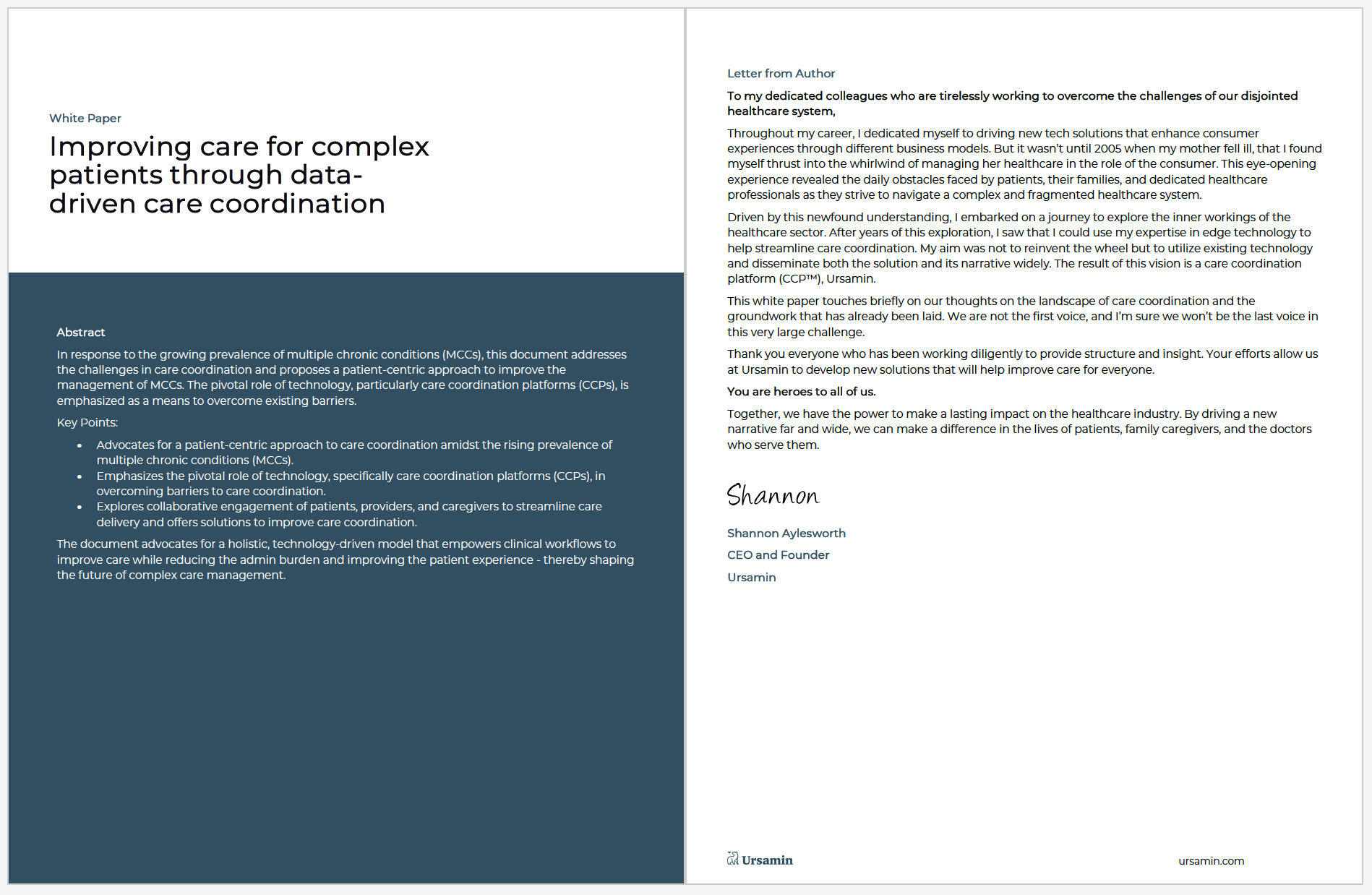Collaboration across the healthcare spectrum is pivotal for enhancing patient care and outcomes. Yet, a significant hurdle in achieving this collaboration is data fragmentation. In fact, patients with Multiple Chronic Conditions (MCC), representing over 85% of healthcare expenditures, typically juggle care from an average of 14 different doctors, along with extended care teams including nutritionists, educators, and community resources.
The seamless sharing of data between primary care physicians and MCC specialists is critical due to the complexity involved. Patients in need of both primary care and MCC services encounter difficulties in accessing and exchanging crucial information because their data is dispersed. To address this issue, it is essential to tackle the fragmentation of healthcare data.
Primary care and MCC physicians are now faced with an increasing number of data sources, which makes it harder for them to navigate through the information effectively. Identifying the vital elements required for accurate diagnosis becomes challenging as the data is stored in different formats and communication between systems is ineffective.
Currently, about 30% of the global data volume originates from the healthcare sector. According to projections, by 2025, the annual growth rate for healthcare data will be 36%. The significant increase in healthcare data is a result of the shift towards providing care outside of traditional medical settings, such as patients’ homes. Various factors, including clinical wearables, tools for remote patient monitoring, and wellness applications, have contributed to this notable rise in data volume.
As a result, healthcare providers struggle to gain a comprehensive understanding of a patient’s complete medical history. This data fragmentation creates obstacles to effective collaboration among providers, patients, and care teams.
Understanding the Challenges of Healthcare Fragmentation
Healthcare fragmentation poses several challenges to effective collaboration. Firstly, it handicaps healthcare professionals’ ability to make informed decisions. Creating a holistic view of a patient’s health becomes difficult when their data is fragmented and dispersed. This leads to inaccurate diagnoses, treatment delays, and jeopardized patient safety.
Secondly, data fragmentation hampers care coordination. In a fragmented system, different healthcare providers struggle to share information seamlessly. Primary care doctors may struggle to get the necessary information from specialists, resulting in repetitive tests and unnecessary treatment delays. This not only affects care quality but also escalates healthcare costs.
Moreover, data fragmentation raises valid privacy and security concerns. Patient information becomes vulnerable to breaches and unauthorized access when it’s dispersed among different systems. This may jeopardize patient confidence and trust in the healthcare system. Therefore, addressing data fragmentation is vital for collaboration but will also increase and effectively safeguard patient privacy.
The Impact of Data Fragmentation on Effective Collaboration
Data fragmentation significantly impacts the overall efficiency and effectiveness of collaboration in healthcare. Here are a few ways it interferes with effective collaboration:
· Communication difficulties: Healthcare professionals spend considerable time searching for and manually reconciling data from various sources. This increases administrative burdens and reduces the time available for direct patient care.
· Lack of analysis capabilities: Without cohesive and inclusive data, healthcare organizations cannot identify trends or patterns. This lack of valuable insights impedes care improvement efforts. It stands in the way of innovation and slows down progress in the healthcare sector.
· Increased risk of medical errors: With the lack of patient information, healthcare professionals may make incorrect treatment decisions. They may also prescribe medications that could adversely interact with existing drugs. These errors can have severe consequences for a patient’s safety and well-being.
Leveraging Technology Solutions for Data Integration
Technology plays a significant role in addressing data fragmentation and enabling effective collaboration in healthcare. Artificial intelligence (AI) and machine learning (ML) algorithms can analyze data from multiple sources. By using this technology, it becomes possible to identify patterns and trends that may go unnoticed through human analysis alone. Also, technologies using AI and ML automate data management processes, reducing the burden on healthcare professionals.
Another technology being leveraged is Cloud computing, which offers flexibility in managing and storing vast amounts of healthcare data. Cloud-based solutions facilitate secure and efficient data sharing, enabling real-time collaboration among different stakeholders.
Emerging health tech platforms such as Ursamin, are also leading the charge in breaking down data barriers. Ursamin utilizes cloud technology, workflow engines, and AI/ML technologies to provide a solution that overcomes the obstacles presented by the segmented healthcare system. By doing so, it facilitates quicker and more seamless collaboration between healthcare providers, patients, and extended care teams.
The Future of Healthcare Collaboration in a Fragmented System
Primary care and MCC physicians can enhance coordination for patients and caregivers by:
– implementing standardized practices
– investing in health information exchange infrastructure
– utilizing technology solutions that promote communication and data collaboration
These strategies play a crucial role in improving overall patient care and ensuring effective communication among healthcare professionals.
Addressing data fragmentation is vital for improving patient outcomes, reducing healthcare costs, and driving innovation in the healthcare industry. A more integrated and connected system means healthcare professionals can make informed decisions and deliver timely, coordinated care.
Learn more about healthcare collaboration amid data fragmentation. Watch this Unlimited Access Podcast with renowned healthcare expert, Ulrike Berzau: https://ursamin.com/blog-articles/unlimited-access-a-conversation-ulrike-berzau.





